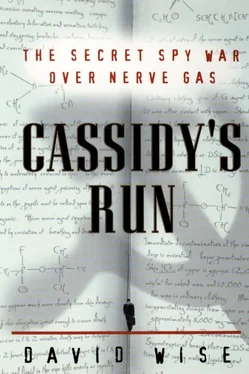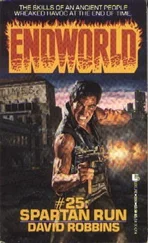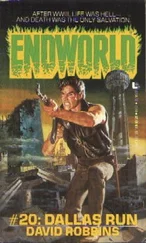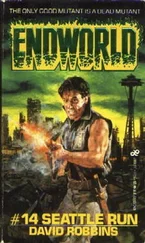When Espinoza reported that Alicia Lopez was stonewalling, Parker decided to bring the PALMETTOS together. “We had told Lopez his wife was also being interviewed,” Parker related. “At that point, we suggested he call his wife. We were at an impasse. He agreed to call his wife and ask her to come to the hotel.
“She showed up about half an hour later. She and her two kids were brought over by Carmen Espinoza and the other agent.” Now there were nine people in the room, five agents and four Lopezes. “When Alicia walked in, her husband said, ‘They know everything.’”
“Don’t say anything,” Alicia shot back.
Recognizing Flores, she embraced him. “She gave me a hug and a kiss,” he recalled. “She said, ‘¿ Qué pasa? What is this all about?’”
The PALMETTOs, of course, knew what it was all about. It was Parker’s move. “We decided to leave them alone in the hotel room, and we went to eat,” he said.
Parker wanted the Lopezes to have time together to talk over their predicament. But Parker was apprehensive; he had checked the windows in the room, which was on the fourteenth floor, and knew that they could be opened. “I was worried about a suicide pact,” he said. “They’re in the room, and they’re saying, ‘Oh shit, what are we going to do?’ and they go out the window. That is not a nice thing to happen.”
As soon as Parker had left the hotel, he went across the street to the FBI office and called Gene Peterson at FBI headquarters to report that Lopez had confessed. “I briefed him on what Lopez had said…. He said, ‘OK, get it into a 302,’ which is an interview report. I said, ‘When do we get the authorization to arrest?’ He said ‘We’ll get back to you.’”
In less than an hour, Peterson called back, having talked to the Justice Department. Parker shook his head at the memory of that moment. “Pete said they wouldn’t authorize it.”
Parker was crushed and furious. His disappointment was shared by Peterson, who had supervised the case for so long. The bureau had by then worked the overall operation for twenty years—the longest espionage case of its kind in the history of the cold war. Two FBI men had died. The Justice Department had refused to move unless Parker got a confession, and he had just gotten it. But still the answer was no.
The FBI agents returned to the hotel, but the Lopezes declined to say more. “Lopez said, ‘What are you going to do to me?’ We said we don’t know yet, or words to that effect.” Parker then told the Lopezes they could go.
Aurelio Flores said the news seemed almost disappointing to the couple. “They wanted to be martyrs, to go on trial. He [Lopez] said, ‘We want our kids sent back to Mexico, and we want to stand trial.’ They wanted the publicity.
“Alicia said, ‘Why are you letting us go, we could have a trial.’ She said, ‘Is this like a spy swap? The Soviets have somebody they are going to exchange for us?’ She said to Gilberto in Spanish, ‘Ask Aurelio, why are they letting us go?’” There may have been another reason why the Lopezes were scared, Flores said. “I think she was worried about what might happen when they got back to Mexico and had to explain to their handlers what had happened. She didn’t say that, but I felt that.”
Espinoza, too, remembered that the Lopezes were reluctant to leave, though for another reason. “They thought they were going to be killed if they walked out the door,” she said. “They didn’t want to leave. I had to convince them it was OK. Finally, they walked out and left.”
Parker knew the spies were slipping out of his grasp, but he was not ready to give up just yet.
The FBI continued to watch the couple. “The Lopezes were under surveillance from the time they left the hotel,” Parker said. Two days later, Parker got word that the Lopezes were leaving for the Minneapolis–St. Paul airport.
Lopez may have thought there was safety in numbers. Arturo Madrid, the chairman of the Spanish department, got a frantic call from Manuel Guerrero, Lopez’s colleague and friend. “He said, ‘Arturo, I need you to meet me at the airport.’” With another professor from the Spanish department, Madrid sped to the airport, where he met Guerrero. “Manuel said, ‘I can’t explain right now. I need you to come to the gate with me. Gilberto is leaving on a plane for Mexico City right now.”
The FBI agents conducting the surveillance had followed the Lopezes to the airport. With several other agents, Parker also drove to the terminal.
He found a telephone and called William O. Cregar, the assistant director of the FBI in charge of the intelligence division.
“They’re in the terminal,” Parker said. He pleaded with his superior in Washington to try to reverse the decision. “I’ll call back later,” Parker said.
“No, they’re not going to authorize,” Cregar replied.
Parker watched the Lopezes get on the plane.
As the airliner taxied toward the runway, he called Cregar again.
“We’ve got one chance,” Parker said. “They’re going to land in San Antonio. It’s not too late.”
“Forget it,” Cregar said.
It was clear that the conversation was over. Parker added, “I was not in a position to question Bill Cregar.”
Totally frustrated, Parker watched until the plane carrying the Lopezes was only a speck in the distant sky.
He alerted the FBI’s San Antonio office, where Edward J. O’Malley was the assistant special agent in charge. “O’Malley had two of his biggest, toughest guys board the plane. One of the agents leaned over and said, ‘Have a good trip, Mr. Lopez.’ As the agents got off the plane, Lopez threw up.”
Professor Rolando Hinojosa-Smith,the new chairman of the Chicano studies department at the University of Minnesota, was startled to get word that day that Professor Lopez had vanished. “I went to work one day, and all of a sudden I was confronted with a missing professor,” he said.
No accurate explanation was given to Lopez’s students for his mysterious departure. Another faculty member took over his classes.
Among the faculty, there was a good deal of buzzing over the unexpected, fast exit of Lopez and his family. Hinojosa-Smith reported Lopez’s abrupt departure to Frank J. Sorauf, an eminent political scientist then serving as dean of the College of Liberal Arts. But Sorauf had apparently already learned something about what had happened, according to Arturo Madrid. Along with a few other colleages, Madrid knew that Lopez had been confronted by the FBI. Madrid recalled speaking with Hinojosa-Smith at the time.
“I remember saying to Rolando we really must protest this, this is outrageous,” Madrid said. “And Rolando said, ‘Well, I’ve already taken it up with the dean, who has informed me that Gilberto was operating as an agent of a foreign power.’”
In the days that followed, word spread among Lopez’s closer associates on the faculty that he had somehow been involved with Cubans. It was a cover story encouraged by Lopez himself.
Arturo Madrid remembered running into Lopez a year later in Mexico. “I was in Guadalajara, and I saw Gilberto Lopez at a conference I was at,” Madrid said. “He came up and thanked me profusely for having come to the airport that day. I kept Gilberto at a distance. I remember talking to my friend Jorge Bustamente…. I said, ‘Be careful, he [Lopez] was acting as an agent of a foreign power.’ Years later, Jorge told me what happened” the day Lopez and his wife fled to Mexico. “He said he had got a call from Lopez from San Antonio saying, ‘It’s a life-or-death situation, meet me at the airport in Mexico City.’ He came off the plane white as a sheet, scared to death, looking all around, and they drove him to his father-in-law’s house. He told Jorge he had been a courier for the Cubans and the FBI had shown him incriminating photos in which he was giving or receiving something from somebody from the Cuban mission to the UN, or the Cuban office in Washington.”
Читать дальше












